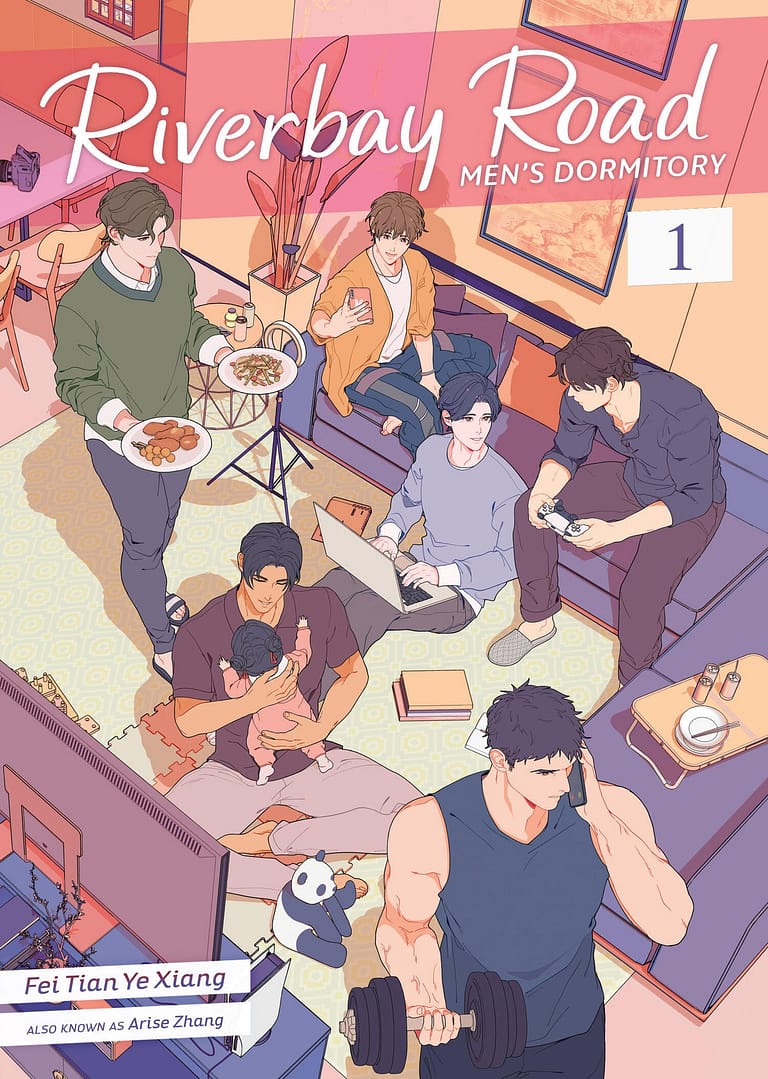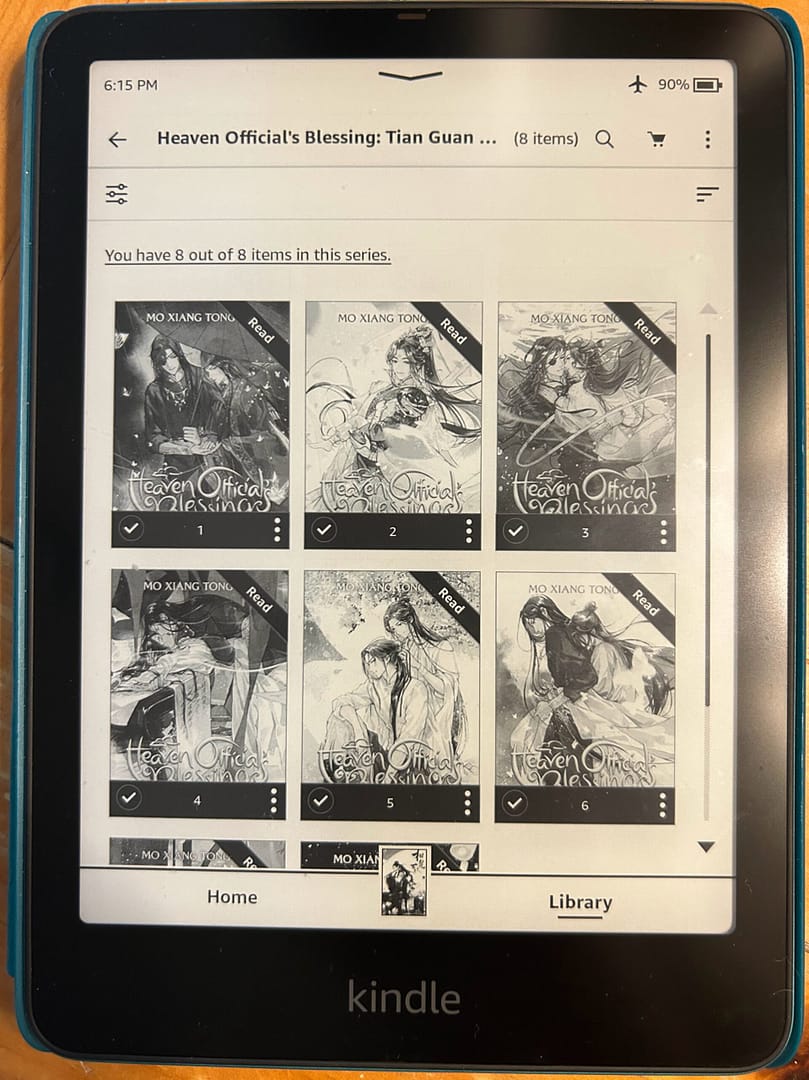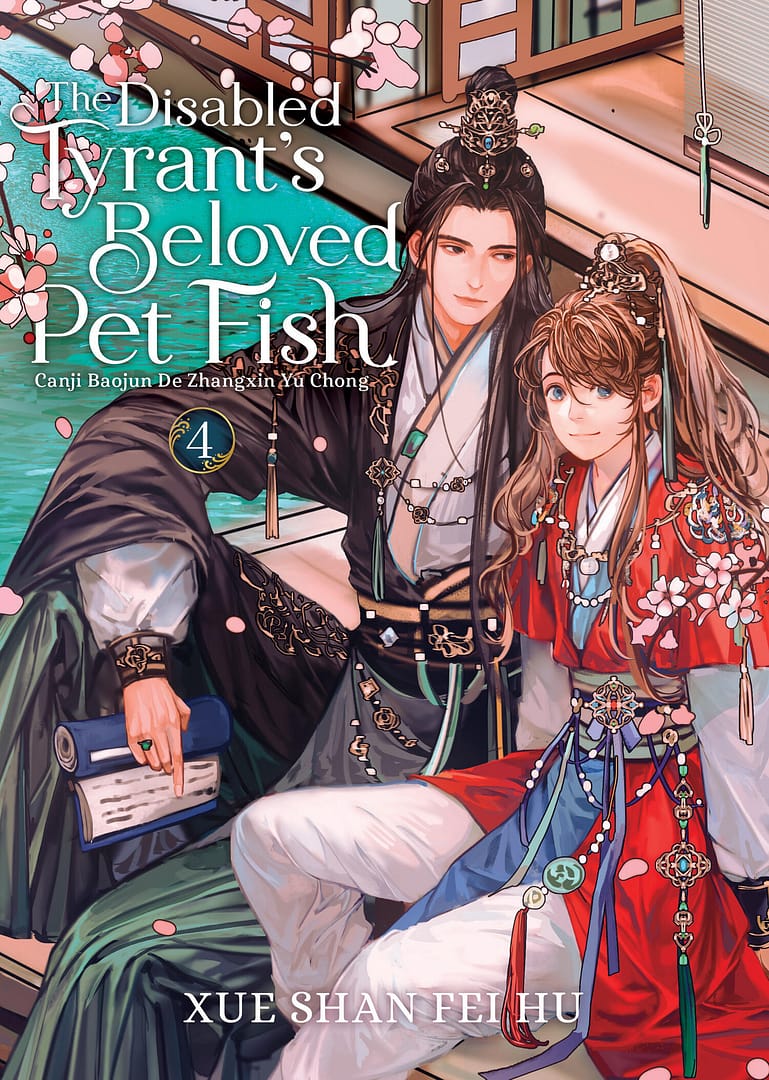Rose and Renaissance v.1 Danmei Novel Review
This is a review for Rose and Renaissance vol. 1 (我只喜欢你的人设[娱乐圈]) by Zhìchǔ (稚楚). This volume is available fully licensed in English from Via Lactea, and can be purchased either directly from Via Lactea (shipping costs outside of Canada can be prohibitive though) or from a third-party retailer.
Please note that all reviews aim to be spoiler-free, while analyses often contain spoilers.
The summary of the book is:
Xia Xiqing is an artist whose angelic looks mask the heartless playboy underneath. When he unexpectedly makes the acquaintance of popular idol actor Zhou Ziheng, the two are thrust into the spotlight and are forced to manage their tangled relationship in front of an audience.

Review Summary
Rose and Renaissance kicks off with an intriguing mix of showbiz glam and slow-burn romance. The entertainment industry backdrop adds a polished, modern feel while giving space for themes like public vs. private self and identity under scrutiny. But despite that solid premise, this volume still feels like setup—layering tension, introducing emotional conflict, and teasing deeper mysteries to come. The pacing is careful, maybe a little too careful, and while there’s definite promise, it hasn’t fully gripped yet. There’s an engaging push-and-pull between the two leads, along with subtle hints at plot threads that will likely expand in future installments.
Romance and Main Characters
The emotional dynamics are messy and complex from the start, particularly when it comes to Xia Xiqing. His actions are often hard to excuse—but the narrative hints that there’s more behind his volatility than meets the eye. Zhou Ziheng, on the other hand, comes across as polished and restrained, but not especially vivid so far. Their chemistry exists mostly as tension: heated glances, impulsive actions, and frustration that borders on obsession. There’s no solid romance yet, but the attraction is front and center, just waiting to tip into something deeper—or destructive.
Secondary Characters
The supporting cast in this volume mostly functions as part of the backdrop—industry professionals, assistants, and a few people from the leads’ personal lives. While several of them show up consistently and have clear roles in the story, they don’t yet stand out as distinct personalities. Their main purpose so far is to reflect aspects of the main characters or move certain scenes along. There’s the sense that some of these relationships have deeper roots or emotional weight, but this volume only scratches the surface. Future installments will likely give them more space to grow.
Plot
The narrative leans into emotional tension rather than external action, unfolding through a series of low-key interactions that slowly expose the characters’ vulnerabilities. Rather than relying on dramatic plot twists, it builds discomfort through contrast—public personas versus private impulses, restraint versus provocation. Much of the plot is structured around proximity: shared spaces, rehearsed intimacy, and unscripted moments that blur performance with reality. While this creates a psychologically rich atmosphere, it also results in a pacing that can feel sluggish at times. Key developments are implied rather than declared, and the emotional turning points—while impactful—can feel abrupt due to a lack of buildup. The mystery elements are subtle but effective, inserted with enough restraint to raise questions without pulling focus from the central dynamic. It’s a strong character study, but as a plot, it hasn’t quite found its momentum yet. This volume is thoughtful and deliberate, but not fully satisfying as a standalone arc.
Worldbuilding
The novel grounds itself firmly in modern entertainment culture—celebrity dynamics, reality TV, online fandoms—without relying too heavily on jargon or exposition. The atmosphere feels authentic, even when filtered through dramatic framing. While the world doesn’t expand much beyond that bubble in this volume, it does set a believable stage for what’s to come. It’s more about the emotional and professional consequences within that space than it is about location or lore, and it works for what the story’s aiming to explore.
Writing Style & Translation:
The writing strikes a careful balance between sharp dialogue and introspective narration, often shifting seamlessly between the two. Scenes linger on mood and atmosphere, with tension simmering beneath the surface even during routine interactions. The prose pays close attention to physical detail—posture, breath, lingering touches—to express emotional undercurrents without stating them outright. Much of the story is told through loaded silences and internal reflection, especially from Xia Xiqing’s perspective, whose shifting emotions are conveyed with nuance. While some sections stretch long without major developments, the tone remains consistent, and the discomfort between characters is palpable. The pacing may be quiet, but the emotional texture is clear and deliberate.
Spice Level
The tension between the leads is charged from the beginning, with several scenes involving forceful physical contact—primarily kissing—that leans into non-con/dub-con territory. These encounters are more about dominance and emotional volatility than romance, and while they don’t cross into explicit territory, they’re intense and deliberate. It may make some people uncomfortable, especially given the imbalance in how boundaries are handled. Still, these moments serve a narrative purpose, revealing cracks in both characters and setting the tone for deeper, possibly messier developments in future volumes.
How to Read
This volume is available fully licensed in English from Via Lactea, and can be purchased either directly from Via Lactea (shipping costs outside of Canada can be prohibitive though) or from a third-party retailer.
Check out the Review of Other Volumes!
-
Rose and Renaissance v.4 Danmei Novel Review
This is a review for Rose and Renaissance vol. 4 (我只喜欢你的人设[娱乐圈]) by Zhìchǔ (稚楚). This volume is available fully licensed in…
-
Rose and Renaissance v.3 Danmei Novel Review
This is a review for Rose and Renaissance vol. 3 (我只喜欢你的人设[娱乐圈]) by Zhìchǔ (稚楚). This volume is available fully licensed in…
-
Rose and Renaissance v.2 Danmei Novel Review
This is a review for Rose and Renaissance vol. 2 (我只喜欢你的人设[娱乐圈]) by Zhìchǔ (稚楚). This volume is available fully licensed in…










